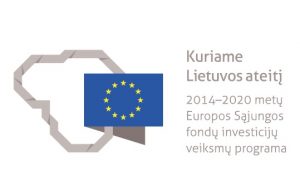„Behave sustainably: psychological mechanisms for environmentally friendly behaviour“, No. 09.3.3-LMT-K-712-01-0017

Project No. 09.3.3-LMT-K-712-01-0017
Project title: „Behave sustainably: psychological mechanisms for environmentally friendly behaviour ”.
Project duration: from 2017-12-27 to 2021-04-30.
Project manager: prof. dr. Rita Žukauskienė.
Summary: The aim of the project is to uncover the psychological mechanisms underlying the formation and promotion of environmentally friendly behaviour. The first phase of the study will involve a representative population-based household survey to assess individuals’ perceptions of human-induced climate change, the prevalence of environmentally friendly behaviour, and to identify the most relevant psychological determinants of environmental sustainability. Based on the findings, an intervention to promote environmental sustainability for students in grades 9-10 will be developed and its effectiveness, both short and long term, will be measured. The developed environmental awareness-raising intervention will help to develop environmentally friendly attitudes and resulting behaviour. The research carried out in the Project will also lead to recommendations for the development of environmental sustainability policy in Lithuania. In order to increase the benefits for society, emphasis will be placed on the dissemination of the Project’s results in both scientific and academic and public spheres.
Result to be achieved: Climate change is considered one of the most threatening global challenges of our time, requiring urgent and science-based solutions (European Commission, Paris Agreement, 2015). Climate change is occurring through natural processes, but is mainly driven by human activities. A changing climate has wide-ranging impacts such as extreme weather events, resource depletion (IPCC, 2014), which increase the risk of health problems (Radišauskas et al., 2014; Bukantis et al., 2015) and mortality. In recent decades, the European Union and the United Nations have issued a series of environmental legislation and recommendations shaping climate change management policies. Many of the solutions implemented are based on technological, physical and economic sciences (Stern, 2007), which do not take into account the importance of the human factor.
The project is funded by the European Social Fund under Measure No. 09.3.3-LMT-K-712 “Development of scientific competence of scientists, other researchers, students through practical scientific activities” activity “Improvement of the qualification of scientists in the implementation of high-level R&D projects”. Grant agreement with the Lithuanian Science Council (LMT).